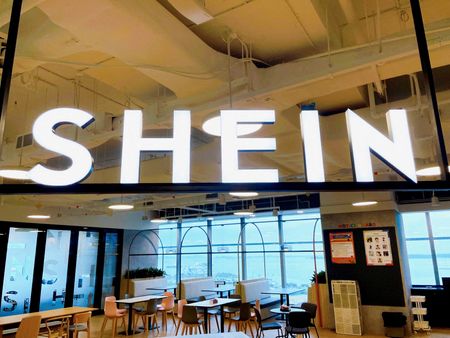 1
1 1
1
By Arriana McLymore
NEW YORK (Reuters) – Shein, an online discount clothing retailer whose labor practices in China are being questioned by U.S. lawmakers, spent $600,000 in the second quarter in lobbying on Capitol Hill, its first filings of such registrations showed.
The outlay by Singapore-based Shein, launched in China in 2012, shows its moderate spending strategy to influence lawmakers on the Hill, said Daniel Auble, a senior researcher at the nonprofit Center for Responsive Politics, which tracks political giving and lobbying.
In May, a bipartisan group of two dozen U.S. representatives urged the Securities and Exchange Commission to halt Shein’s potential initial public offering reported by Reuters, until the company verified it does not use forced labor or violate the Uyghur Forced Labor Prevention Act.
Shein has denied using forced labor and that it was planning to go public in the U.S. this year.
U.S. lawmakers are also questioning Shein’s data privacy and use of a U.S. duty exemption on low-priced direct shipments to consumers.
Shein’s $600,000 lobbying outlay, filed on Friday, does not put it “among the biggest spenders,” Auble said.
By contrast, U.S. retailers Walmart spent $1.62 million and Gap spent $140,000 in the second quarter, lobbying disclosures showed.
Since the 2022 third quarter, Shein has paid lobbying firms Hobart Hallaway & Quayle Ventures $500,000; and Akin, Gump Strauss Hauer & Feld $270,000, the firms’ filings showed.
Neither firm was immediately available for comment.
A Shein spokesperson said on Friday the company will continue to “engage policymakers and participate in discussions that will help us continue to add value to the U.S. economy, support our American workers, and bring industry-wide benefits to consumers.”
(Reporting by Arriana McLymore in New York City; Editing by Richard Chang)